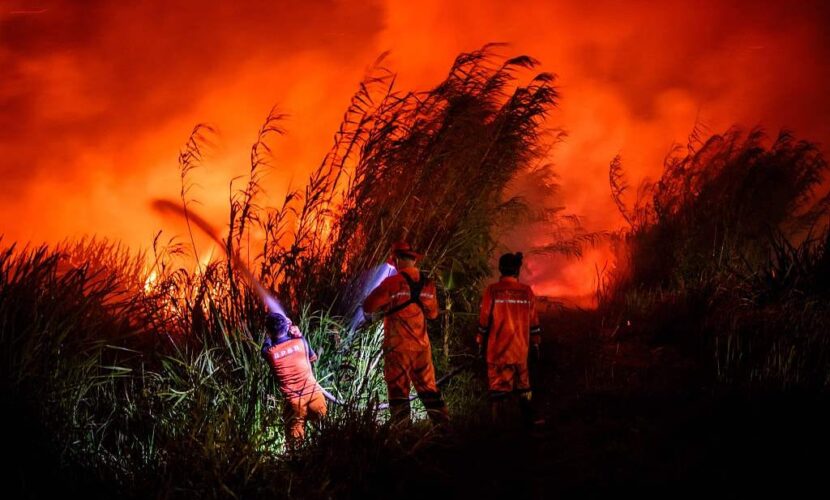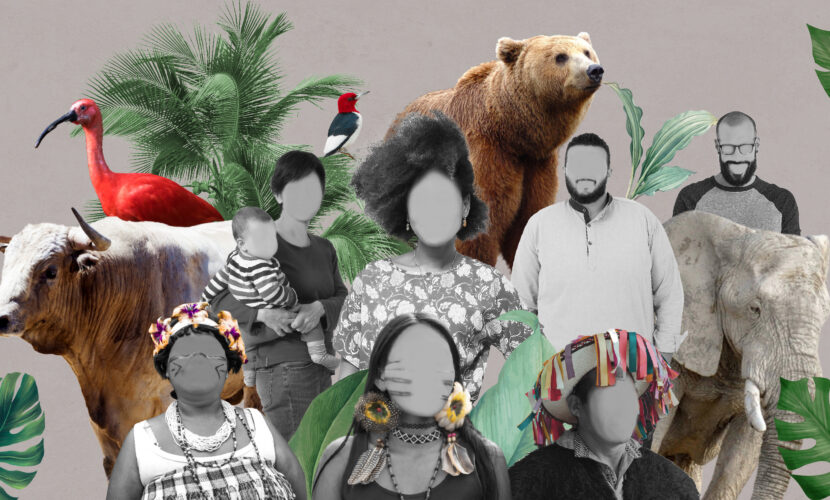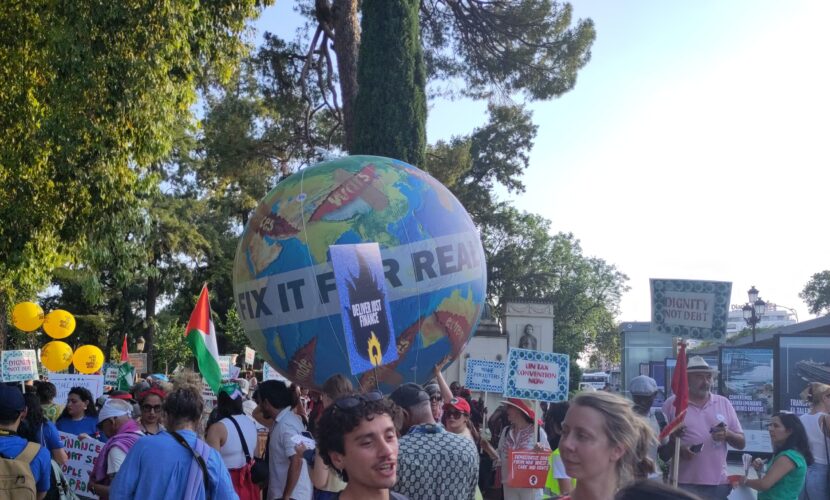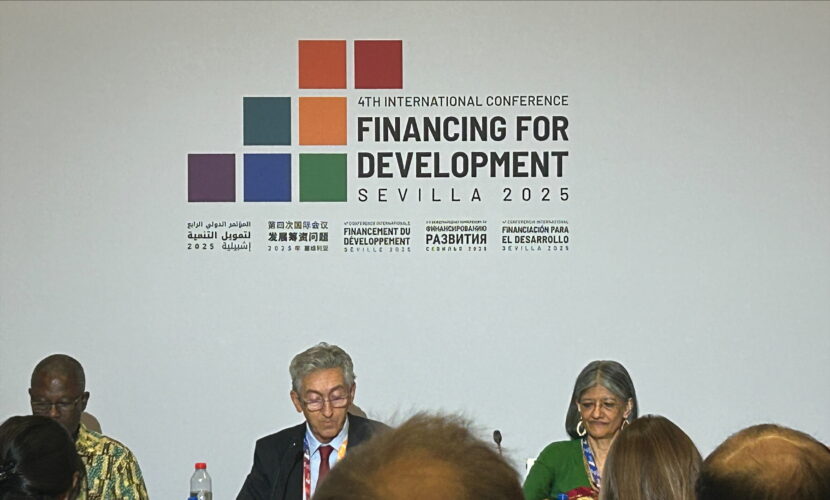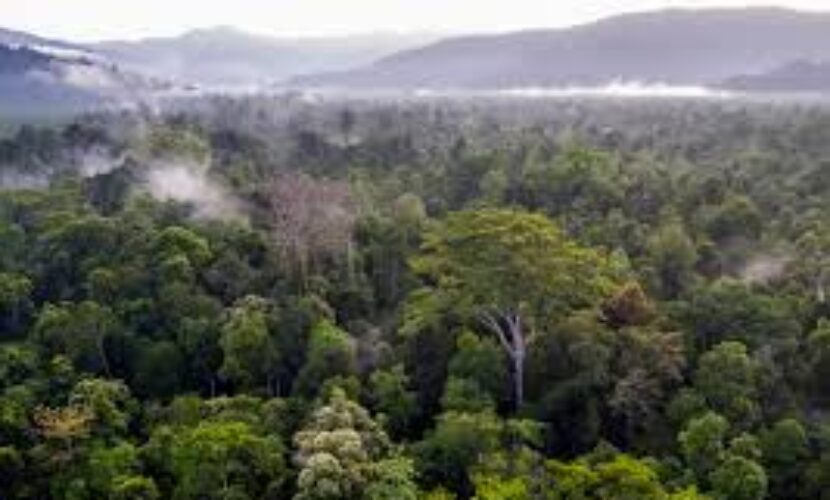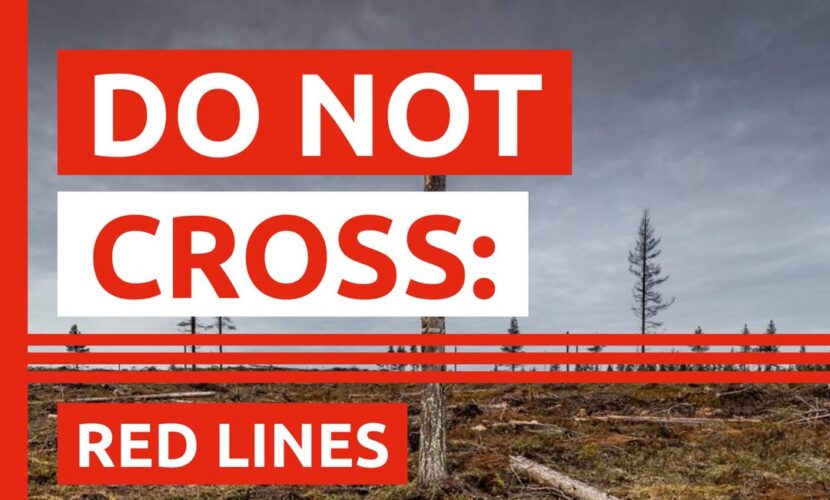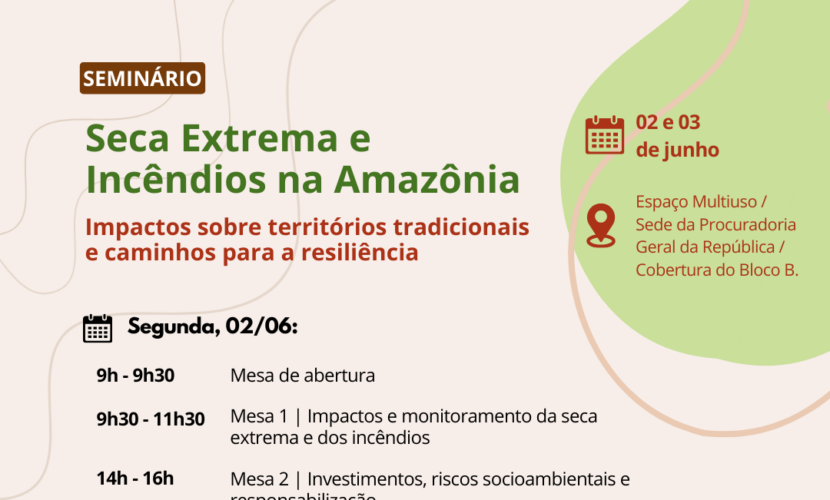Actualités
Civil Society Coalition Demands Bank MUFG and Danamon to Take Responsibility for Forest Destruction, Climate Crisis, and Human Rights Abuses in Indonesia.
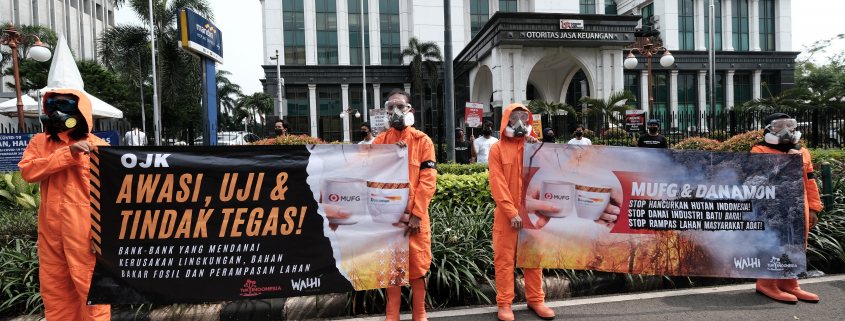
Bank Danamon is a MUFG subsidiary that is granted an exception in complying with MUFG’s latest palm oil and forestry policies, undermining the quality of its Annual Sustainability Report and Sustainable Finance Action Plan.
Today, a coalition of civil society organisations conducted a protest in front of the office of Mitsubishi UFJ Financial Group (MUFG), in Jakarta. The coalition calls on MUFG to stop funding climate finance through the disbursement of funds provided to several large mining and agribusiness companies in Indonesia. The coalition also demands that MUFG immediately adopts the “No Deforestation, No Development on Peatlands, and No Exploitation” (NDPE) standard, and apply it to all financing conducted by MUFG and its subsidiaries. This includes MUFG clients in Indonesia which include some of the largest corporate groups producing palm oil, pulp & paper, such as the Sinar Mas Group (SMG), Royal Golden Eagle (RGE), Salim Group and Jardine Matheson Group.
“MUFG is rapidly expanding its business in Indonesia and recently acquired the sixth largest bank in Indonesia, Bank Danamon. However, this new subsidiary is not required to comply with MUFG’s new palm oil and forestry policies, making Bank Danamon a golden child which is allowed an exception in complying with MUFG policy thus able to exploit loopholes at the regional level to execute transactions in prohibited and risk sectors”, said Edi Sutrisno, Director of TuK INDONESIA.
In the absence of a clear commitment to best practices such as “NDPE”, MUFG’s policy is tantamount to a half-hearted commitment. Even in the forestry sector, MUFG still accepts the Program for the Endorsement of Forest Certification (PEFC) standard, a weak standard because it still certifies companies that are destroying natural forests, peatlands and that are in conflict with communities. This is evident by the fact that since 2016, MUFG has provided loans of more than USD 500 million to the Sinar Mas Group (SMG) which is one of the companies causing recurring fires in Indonesia. SMG is also listed as a corporate group with documented human rights abuses and environmental destruction, which involves land grabbing, intimidation, criminalization, and violence.
MUFG is also one of the banks which still finances Indofood, a food giant which for years has been documented committing oil palm labor rights violations at its subsidiary PT. London Sumatra and is now facing lawsuits from trade unions for unfair termination of employment.
Till today, the people of the Sekato Jaya Farmers Group in Lubuk Mandarsah, Jambi, who are members of the Sekato Jaya Farmers Group, are still struggling to defend their land and livelihoods, which were confiscated and damageded by one of SMG’s subsidiaries, namely PT. Wirakarya Sakti (WKS). “We live here in desperate need of land because it is for the future of our children. We want to live a quiet, peaceful, serene life here. And I ask for PT. WKS’s help in understanding the community’s hardship. Please return our customary land in Lubuk Mandarsah Village”, said Mrs. Minarti, a female farmer in Lubuk Mandarsah Village who grows and sells bananas, cassava and chilies to support her family.
In addition to human right violations, MUFG is also actively funding the deliberate use of fire to clear land, often illegally. After 2015, when fires ravaged Indonesia and razed 2.6 million hectares of forest and peatland, MUFG continued to provide more than USD 1.2 billion to the operations of oil palm and pulp and paper companies which use fire to clear forests and peat land in Indonesia. However, to date MUFG does not have a policy to restrict financing to companies that use fire or the source from third parties that use fire.
MUFG is also one of the largest fossil fuel banks in the world, with substantial financing for coal power plants, oil, gas and tar sand extraction. In Indonesia alone, MUFG Securities Asia Limited has provided loans to the subsidiary of PT. Adaro Energy Tbk (ADRO), which is currently listed as the largest coal mining company operating in Indonesia. Based on the latest Banking on Climate Chaos report, MUFG was responsible for a loan of USD 148 billion to the fossil fuel industry between 2016-2020, making it the worst fossil fuel bank in Asia and locking us in to fossil fuel dependence at a time when we need to quickly shift to clean energy.
“Big banks should have transformed from conventional financing to sustainable financing. This is because currently banks can no longer avoid responsibility for their reckless financing. As the largest bank in Japan, MUFG has the knowledge and resources to become a more responsible bank and play an integral role by committing itself to protecting forests, respecting human rights, and immediately obliging all MUFG-funded companies to uphold MUFG’s values and commitments, including by enforcing environmental and social standards through contractual agreements; and by terminating relationships with parties who undermine our sustainable future or violate human rights. The positive changes by MUFG will have a major impact on other financial sectors”, said Edi.
Dr. Bayu Eka Yulian, Secretary of the Center for Agrarian Studies of IPB University said, “If the tears which are falling downstream, such as the loss of community livelihood forests and the criminalization of the poor are the consequences, then one of the springs in the upstream, namely capital, is the cause. Therefore, actors must rethink their approach to investment decisions and capital allocation by making sustainability an investment philosophy. OJK with its Sustainable Finance Roadmap must be a firm conductor in orchestrating this sustainable finance movement ”.
